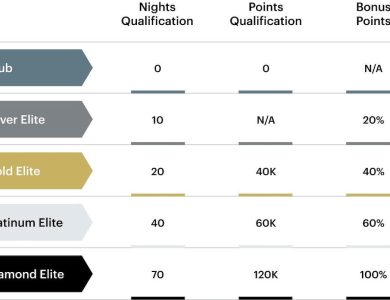
In an era where digital platforms and mobile applications have revolutionized the way we plan and book our travels, the allure of travel deals promising unbeatable prices is more enticing than ever. From flash sales to exclusive online discounts, consumers are inundated with offers that claim to provide the lowest possible rates for flights, accommodations, and vacation packages. However, amidst this sea of seemingly lucrative options, a critical question emerges: do these travel deals genuinely offer the lowest prices, or are they merely a marketing strategy designed to create a sense of urgency and value? This article delves into the mechanics of travel deal pricing, examining the factors that influence these offers and exploring whether they consistently deliver on their promise of cost-effectiveness. By analyzing industry practices, consumer experiences, and market dynamics, we aim to uncover the truth behind travel deals and provide a comprehensive understanding of their actual value in the modern travel landscape.
Understanding the Mechanics of Travel Deals
At the heart of travel deals lies a complex web of variables that determine their final pricing. Airlines and hotels often use dynamic pricing models, adjusting rates based on demand, booking windows, and even the time of day. This means that a “deal” might not always be the lowest price available, but rather a strategic offer designed to fill seats or rooms that might otherwise go empty. Understanding these mechanics can help travelers identify genuine bargains amidst a sea of promotional offers.
- Flash Sales: Often limited in duration, these are designed to create urgency. While sometimes genuine, they might not always offer the best price compared to regular booking.
- Bundle Offers: Packaging flights, hotels, and car rentals can provide savings, but it’s crucial to compare each component individually.
- Loyalty Programs: Exclusive deals for members can offer substantial savings, but they often require frequent travel to unlock significant benefits.
- Seasonal Promotions: Prices fluctuate with tourist seasons; off-peak travel can yield better deals, albeit with limited amenities or activities.

Evaluating the True Cost of Discounted Travel Packages
When evaluating travel deals, it’s essential to look beyond the enticingly low upfront prices. While discounted packages often promise significant savings, a closer inspection may reveal hidden costs that can affect your overall budget. Taxes and fees, which are sometimes not included in the advertised price, can add up quickly, turning a seemingly inexpensive trip into a costly affair. Additionally, limited amenities or restrictions on travel dates can impact the quality of your experience and lead to unexpected expenses, such as meals or activities that aren’t covered by the package.
Moreover, it’s important to consider the value of flexibility. Discounted packages might come with stringent cancellation policies or change fees, which can be a major drawback if your plans shift. It’s also worth investigating whether the accommodation and transportation options included in the deal are of a standard you find acceptable. Often, the lowest prices are tied to off-peak seasons or less popular destinations, which might not align with your travel preferences. To truly assess the cost-effectiveness of a travel deal, it’s crucial to compare it with other options, considering both the monetary and experiential value it offers.
- Hidden fees: Taxes, service charges, and other fees.
- Quality of inclusions: Accommodation and amenities.
- Flexibility: Cancellation and change policies.
- Timing and location: Peak vs. off-peak, popular vs. less known destinations.

Comparing Travel Deals with Direct Booking Prices
When it comes to planning a trip, many travelers are enticed by the allure of seemingly unbeatable travel deals advertised by third-party booking sites. However, a closer examination often reveals that these deals might not always offer the lowest prices compared to booking directly with airlines or hotels. While third-party platforms provide a convenient way to compare options, they sometimes include hidden fees or surcharges that inflate the final cost. Moreover, booking directly can offer exclusive perks, such as loyalty points, room upgrades, and flexible cancellation policies, which are not always available through intermediaries.
Additionally, direct booking often provides a more personalized experience. Many hotels and airlines offer customer service benefits like direct communication channels and priority support, which can be crucial in resolving issues quickly. It’s also worth noting that direct bookings might include bundled offers or discounts that are not visible on third-party sites. Therefore, while travel deals can be appealing, a comprehensive comparison that includes direct booking options is essential to truly assess the value and cost-effectiveness of the deal. Ultimately, the choice depends on the individual traveler’s priorities, whether they value the convenience of a one-stop-shop or the potential benefits of booking directly.

Strategies for Identifying Genuine Travel Bargains
When it comes to uncovering true travel bargains, the key is to employ a set of effective strategies that go beyond simply browsing for discounts. Timing plays a crucial role; booking flights and accommodations during off-peak seasons or mid-week can often yield lower prices. Additionally, setting up fare alerts on travel websites can help you catch sudden price drops. Make use of comparison tools to evaluate prices across different platforms, ensuring you don’t miss out on better deals elsewhere. Often, subscribing to newsletters from airlines and travel agencies can provide exclusive offers that aren’t widely advertised.
Another strategy is to consider alternative destinations. Popular tourist spots tend to have inflated prices, so exploring lesser-known but equally captivating locales might offer better value for your money. Flexible travel dates can also enhance your chances of finding bargains, as prices can vary significantly from one day to another. Lastly, look into package deals that bundle flights, hotels, and sometimes even activities. These packages are often discounted, providing a more cost-effective option compared to booking each component separately. By employing these strategies, travelers can better navigate the maze of travel deals to find genuine savings.



